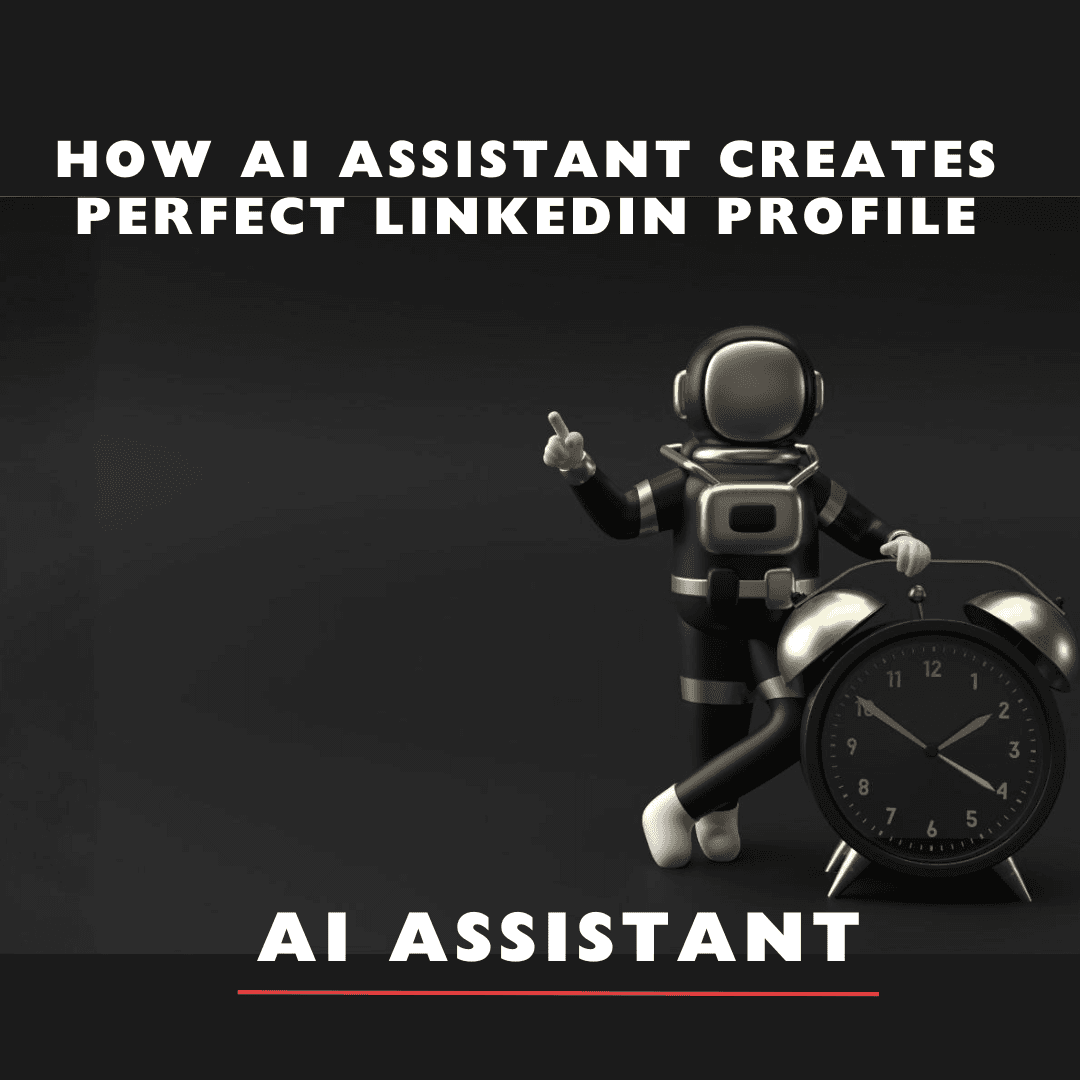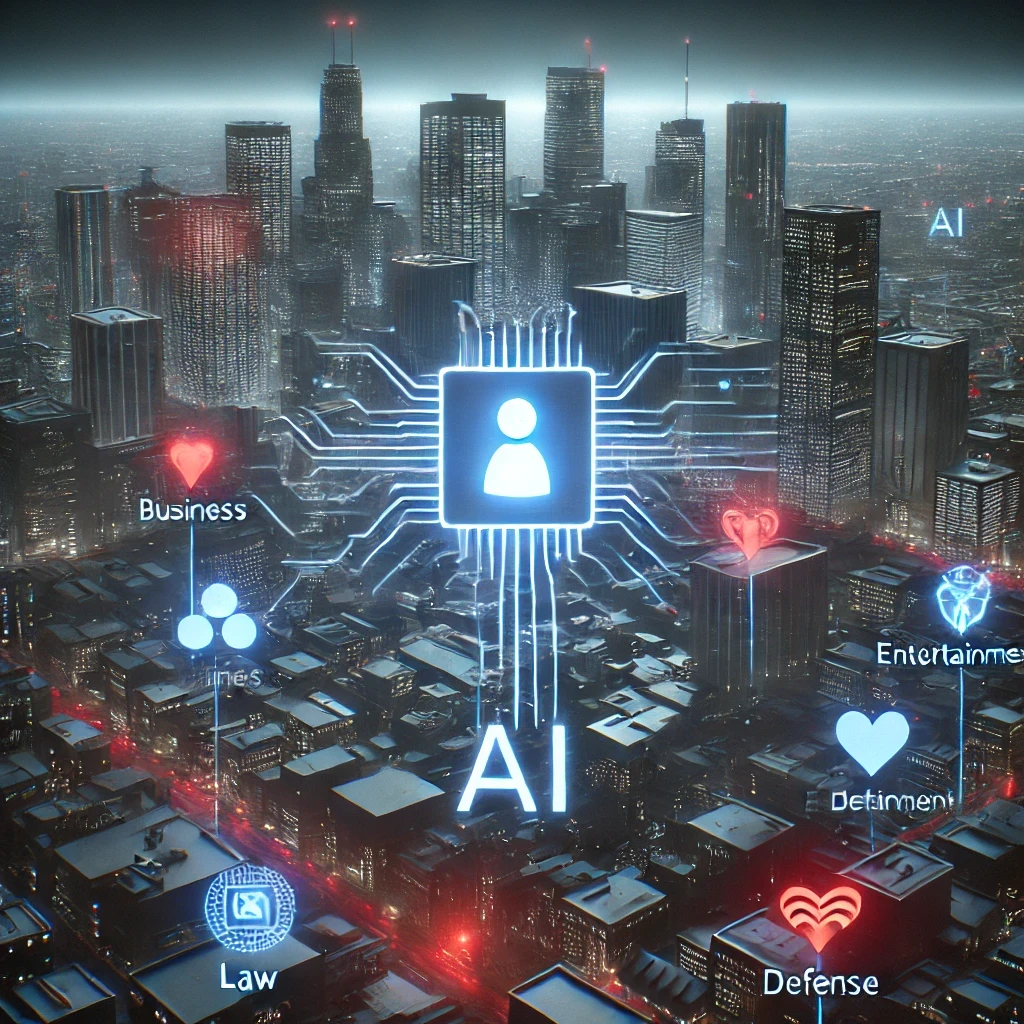Back
Mar 20, 2024
Cover Letters in the Age of AI: Balancing Technology and Personal Touch for Job Success

Jennifer Lee
Empowering the Corporate World: AI's Rise to Prominence and Its Impact on Productivity and Employment
Manual Cover Letter Writing vs. AI Assistant
Scenario: Writing a Cover Letter with an AI Assistant
Empowering the Corporate World: AI's Rise to Prominence and Its Impact on Productivity and Employment
1. Empowering the Corporate World: AI's Rise to Prominence and Its Impact on Productivity and Employment
The broad adoption of AI within the corporate sector is substantial, with more than 90% of leading enterprises engaging in AI investment. This investment indicates AI's growing importance, potentially including applications for cover letter writing.
AI's impact on productivity is notable, with 61% of workers reporting increased productivity after AI adoption in their workplaces. This suggests AI tools, like cover letter generators, could offer time-saving benefits.
Concerns exist about AI's potential to displace jobs, with predictions suggesting significant job losses due to automation by 2025. Despite these concerns, AI is also seen as a tool for enhancing efficiency in various tasks, including potentially the cover letter writing process.
Overall, while direct comparisons are scarce, the broader trend indicates AI's increasing role in enhancing task efficiency, including in job application processes.
2. Manual Cover Letter Writing vs AI Assistant
Personalization
Manual: Writing a cover letter manually allows for a high degree of personalization. Individuals can tailor their language, tone, and content specifically to the job they are applying for, reflecting their unique personality and career aspirations.
AI Assistant: AI Assistants, powered by artificial intelligence, can also offer personalized cover letters by analyzing job descriptions and using information provided by the user. These systems can identify key skills and experiences relevant to the position and incorporate them into the letter. While AI Assistants can generate highly relevant content, the depth of personal touch might not be as pronounced as in manually written letters.
Efficiency and Time Management
Manual: Writing a cover letter manually is time-consuming. Each letter must be crafted from scratch, tailored to the job, and proofread for errors. This process can be particularly daunting for individuals applying to multiple positions simultaneously.
AI Assistant: AI-powered virtual assistants significantly reduce the time and effort required to create a cover letter. By automating the drafting process and offering suggestions based on job-specific criteria, AI Assistants can generate a cover letter in a fraction of the time it takes to write one manually.
Effectiveness in Capturing Attention
Manual: The effectiveness of a manually written cover letter largely depends on the writer's skills and experience. A well-written, personalized cover letter can stand out and make a strong impression on the hiring manager.
AI Assistant: AI Assistants are designed to optimize cover letters for both readability and keyword relevance, increasing the chances of passing through Applicant Tracking Systems (ATS) and catching the eye of recruiters. However, the effectiveness can vary based on the sophistication of the AI and its ability to interpret the nuances of the job description and the applicant's experiences.
3. Scenario: Writing a Cover Letter with an AI Assistant
Step 1: Setup and Introduction to the AI Assistant
First, access the AI Assistant through its platform (website, app). If it's your first time, you might need to create an account and introduce yourself. The AI Assistant will likely ask for basic information such as your name, profession, and areas of expertise to personalize the support.

Image : AI Assistant.
Step 2: Providing Job Application Details
Job Description: Copy and paste the job description into the AI Assistant's interface. The assistant will analyze this information to understand the role's requirements and the employer's needs.
Skills and Experiences: Highlight your relevant skills and experiences that align with the job description. Be precise about your accomplishments, quantifying your achievements when possible.
Preferences: Specify any preferences you have for the cover letter, such as tone, length, or particular phrases you wish to include. The AI Assistant might also offer style options based on the job's industry.
The example :
USER :
Hi!
Analyze this information to understand the role's requirements and the employer's needs:
Responsibilities: …….
AI Lawyer :
Based on the job description and supporting search results, here's my analysis of the key requirements and expectations for the role focused on implementing, managing, and optimizing ad campaigns in the finance, CFD, forex, and cryptocurrency industries:
Role Requirements and Expectations:
Proven Track Record in Paid Advertising:
Experience in managing paid ad campaigns across platforms like Google Search Ads, Meta Ads, Google Display Ads, and programmatic display ads.
Finance, CFD, Forex, and Cryptocurrency Knowledge:
In-depth knowledge of financial services, CFDs, forex, and cryptocurrency products and services, including English-language proficiency.
Non-English Language Proficiency:
Proficiency in languages other than English may be advantageous for campaigns targeting global markets.
Data-Driven Approach:
Utilize data-driven strategies to optimize campaigns, analyze performance, and adjust strategies accordingly.
Campaign Management and Creativity:
Develop and manage ad campaigns, including creative content for adherence to financial advertising policies and cultural sensitivity, given that the role involves managing ads related to finance, CFD, crypto, forex, and cryptocurrency industries.
Familiarity with Advertising Policies:
Understanding of advertising policies related to financial services, personal loans, and specific knowledge of cryptocurrency and DeFi and CFD marketing policies, including Google and Microsoft Advertising.

The image illustrates AI Assistant answer.
Step 3: AI Drafting Process
Once you've provided all the necessary information, the AI Assistant will begin drafting your cover letter. This process may take a few seconds to a few minutes, depending on the complexity of the request and the depth of customization required.
Step 4: Review and Customize
Initial Review: The AI Assistant will present a draft of your cover letter. Read through it carefully, checking for accuracy, tone, and completeness.
Customization: Make adjustments where necessary. You can ask the AI Assistant to rephrase certain parts, add additional details about specific experiences, or modify the letter's structure.
Feedback Loop: Utilize the AI's feedback mechanism to improve the draft. Most AI Assistants learn from corrections and can apply your preferences more accurately in future tasks.
Step 5: Finalization and Export
Approval: Once satisfied with the cover letter, confirm its final version with the AI Assistant.
Export: The AI Assistant will then offer options to download or directly send the cover letter to your email. Choose the format that best suits your needs (e.g., PDF, DOCX).
When using AI to assist with cover letter writing, it's important to provide detailed instructions to guide the output. This includes specifying your goals, format, tone, key points, and audience. Including your resume can help tailor the cover letter closely to your experiences. However, AI-generated content may lack the personal touch and understanding of specific job dynamics. Ethical considerations also arise, as some hiring managers may view AI-generated letters skeptically. It's best to use AI as a starting point and then personalize the content to accurately reflect your qualifications and interest in the job.























